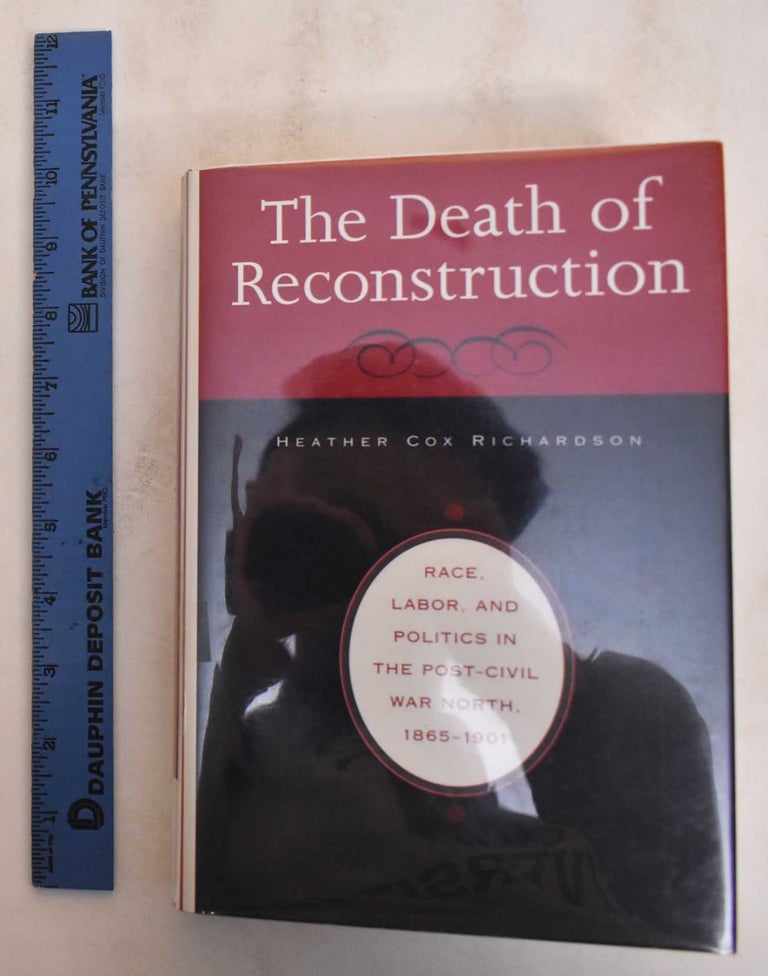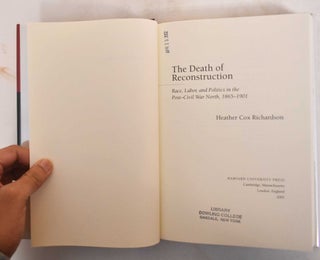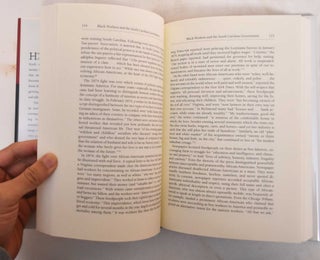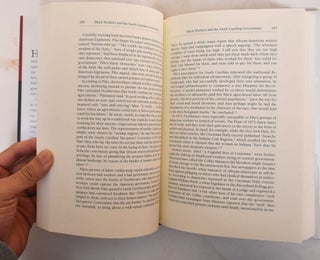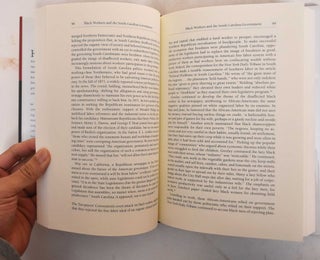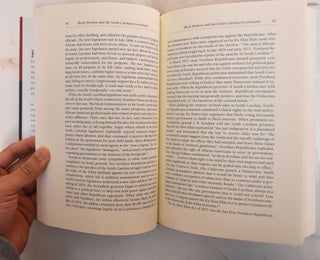The Death of Reconstruction: Race, Labor, and Politics in the Post-Civil War North, 1865-1901
Cambridge, MA: Harvard University Press, 2001. Hardcover. Burgundy cloth boards with gilt spine lettering; red, black and white dj, mylar cover; xvi, 312 pp. VG-/VG- (ex-library with labels and stamps on spine, block, inside front and rear covers and title page verso. Pages are otherwise very clean and clear. Binding is tight.). Item #184981
ISBN: 9780674006379
"Historians overwhelmingly have blamed the demise of Reconstruction on the South and on white Americans' persistent racism. Heather Cox Richardson argues instead that class, along with race, was critical to Reconstruction's end. Northern support for freed blacks and Reconstruction weakened as growing labor interests critiqued the economy and called for government redistribution of wealth." "Using newspapers, public speeches, popular tracts, Congressional reports, and private correspondence, Richardson traces the changing Northern attitudes toward African-Americans from the Republicans' idealized image of black workers in 1861 through the 1901 publication of Booker T. Washington's Up from Slavery. She examines such issues as black suffrage, disfranchisement, taxation, westward migration, lynching, and civil rights to detect the trajectory of Northern disenchantment with Reconstruction. She reveals a growing backlash from Northerners against those who believed that inequalities should be addressed through working-class action, and the emergence of an American middle class that championed individual productivity and saw African-Americans as a threat to their prosperity."--Jacket. Contents include: Prologue: the view from Atlanta, 1895 -- The Northern postwar vision, 1865-1867 -- The mixed blessing of universal suffrage, 1867-1870 -- Black workers and the South Carolina government, 1871-1875 -- Civil rights and the growth of the national government, 1870-1883 -- The Black exodus from the South, 1879-1880 -- The un-American Negro, 1880-1900 -- Epilogue: Booker T. Washington rises Up from slavery, 1901.
OCLC: 46565122
Price: $270.00


